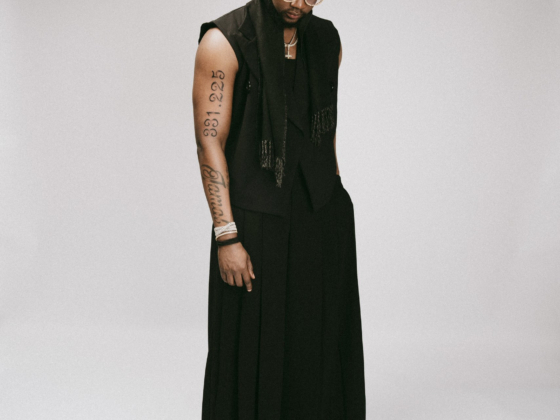On "Hanging Waves," the closing track from Christian Cohle's self-released debut album, Holy Trouble, he calmly sings, "there are snakes all around me / if I break they may find me." Against a backdrop of a searching, ambient production, he gives in to his demons—the intrusive thoughts, ignored realizations, fearful side glances—in a seven-minute emotional release that eventually reaches its cathartic peak somewhere in the middle, riding on that bass-lined percussive high for the remaining half. Meant to bring a sort of closure to the previous nine tracks, it takes on a heavy responsibility, dragging out the repeating verses, hoping that by length alone, it can make sense of the process. But at times, it forgets its role. Mainly because its greatest strength lies not in its placement, nor in its clocked time, but in its ability to let go and simply be. A rare but immensely rewarding occurrence in the Irish producer-singer-songwriter's debut performance.
Holy Trouble is an album riddled with self. Written entirely by Cohle, and produced/mixed alongside collaborator Michael Heffernan, it is a stream of consciousness that only Cohle himself can truly dissect and categorize. But within the mess of his own mind, there are snippets of a world that can be easily visited by any anonymous traveller, bolstered by '90s dance era atmospheric pads ("Breathe") or dramatic chorus breaks reminiscent of Sam Smith ("Holy Trouble"). There is space left for others to occupy, to huddle in and sway in its encouraging waters. But just as easily, there are pockets of space so tight, so warped, that only Cohle can possibly fit inside them, while the rest of us are left to simply watch from the outside.
"I was becoming more and more solitary in the writing of this album," he shares in a statement. "My relationships with some of the people closest to me were overwhelming me and becoming toxic, I had undergone some awful fall-outs and it seems in retrospect that I didn't have the tools to bear it, any other way than leave." On "Drown Me Slow," he emulates the helplessness of fixation, of wanting to walk away, but unwilling to forsake any of the memories—"I don't wanna forget, nor let go"—in a production that mimics a more vivid version of James Blake. While many influences can be picked up in the ten-track album, his most endearing work is the one where the thought separates from the strokes of keys and turning of knobs, where the production is just him, as minimal or as loud as it may be. Tracks like "Wallflower" and "Pride" bring out complexities hidden in plain sight amidst simple yet incredibly hypnotizing compositions, made up of reverberating synths and bass heavy effects. There is an inspiring and utterly refreshing artist within the corners of Holy Trouble, if only when he lets himself be one.
Holy Trouble is out now, with a full album theatre set available to watch here.
Connect with Christian Cohle: Instagram|Facebook|Twitter|Spotify









